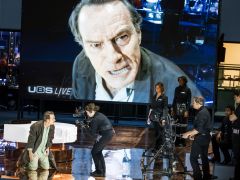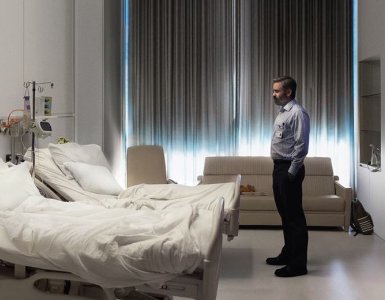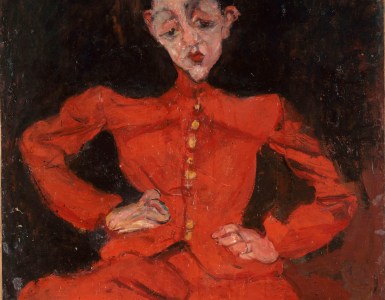At this time of year, it’s customary, amid the lethargic haze of Christmas and New Year, to take some time out for a healthy bit of introspection. And, in that festive spirit, I have taken it upon myself to draw up, like the benevolent film-critic equivalent of Father Christmas, a ‘nice list’ of 2017 cinema releases. The ranking is a top 15 of the films I saw this year, which is not to say that I have seen all the 2017 films worth seeing. But, of the ones I enjoyed, the following were the most impressive.
15. Annabelle: Creation (Dir: David F Sandberg)
It’s always nice, as a fan of the genre, to see a horror film make it onto this list. In a time where modern horror feels very much like it’s been monopolised by a few titles (The Conjuring, Insidious, as well as endless remakes of the classics), Annabelle: Creation was a refreshing advert for the big-name franchises. The Conjuring universe hasn’t always produced a high standard, but in Annabelle, cheap jump-scares were largely replaced by a thrilling, if generic, storyline and images that burned onto the retinas like red-hot pokers. An effective, watch-through-your-fingers shocker.
14. Denial (Dir: Mick Jackson)
Knowing very little about the Lipstadt trial – a defamation case regarding the Holocaust – before seeing the film, this dramatization felt well-constructed. The film captures the beats of the true events well, and doesn’t shy away from the contentious issues of free speech and antisemitism which are inevitably dug up. It takes an even-handed approach and recreates the proceedings in a commendably objective way, though the story does follow Lipstadt rather than Irving in the main. The themes are complex, but are presented accessibly, which makes for a subtle, though-provoking piece.
13. Free Fire (Dir: Ben Wheatley)
Set in a single warehouse in the 1970’s, Free Fire maps the tensions of a single shooting match between an arms dealer and his clients, punctuated by tense humour and biting dialogue. With a setting this constricted, the drama escalates impressively, building to a conclusion which embraces its own wit and absurdity. An unexpected delight.
12. Atomic Blonde (Dir: David Leitch)
With a heart-thumping soundtrack and slick tour de force action sequences, this sexy Cold War spy thriller twists its way through the dark streets of East Berlin with pace and intrigue. Complete with visuals so arresting you half believe they’ll leap of the screen and smack you with one fell swoop of a neon fist, Atomic Blonde was the outstanding action film of the summer. Charlize Theron and James McAvoy put in performances that would make even John Wick blush.
11. Manchester by the Sea (Dir: Kenneth Lonergan)
In this touching, meandering drama, we glimpse the raw sensitivities that make our complicated lives. We find the passion, the humour, the anger, the suspicion, and the love of a relationship broken by depression and loss; and the delicate rekindling of a bond sparked in the ashes of familial tragedy. Casey Affleck gives a remarkable portrayal of a man who must put his life back together, piece by piece.
10. T2 Trainspotting (Dir: Danny Boyle)
More often than not, sequels have almost nothing else to say. But Danny Boyle’s trademark experimental style in T2 fashions a compulsive postscript to the original – a reminder of the long-term effects of social evils, the reality of age, and the claustrophobia of the modern world. A fitting addendum.
9. A Monster Calls (Dir J.A Bayona)
In a vibrant explosion of didactic charm, one lonely boy comes to terms with his mother’s illness through the lusciously animated stories of his imaginary friend. A Monster Calls is a disarmingly profound treasure, handling difficult themes with skill and self-assuredness.
8. The Sense of An Ending (Dir: Ritesh Batra)
Jim Broadbent stars in this poignant piece exploring memory and the role we play in constructing our own narratives. The strength of the script and Broadbent’s central performance elevate the story to a place that interrogates the very idea of self-perception. An accomplished jewel of a film.
7. Star Wars: Episode VIII - The Last Jedi (Dir: Rian Johnson)
When it comes to Star Wars, it’s extremely difficult to ignore the hype, the pervading voice of the hard-core fans, and the perpetual expectation exerted upon the franchise. But unhesitatingly, speaking as a casual viewer, The Last Jedi is an undeniably strong instalment. It has enough of those air-punch moments that suddenly unleash your inner twelve-year-old, and it progresses the story enough that some of the more suspect dialogue and plot points may be overlooked. Distinct from the prequels, this most recent trilogy is proving to be one with clear direction, even pausing occasionally to ponder the very nature of its own good-evil narrative tension. An immensely satisfying treat.
6. War for the Planet of the Apes (Dir: Matt Reeves)
In this final part of a reimagined trilogy, the title does not disguise the burning heart of the film – the conflict for survival between the bolstered apes and the spiraling remains of humankind. Underscored, as always, by the impressive motion-capture that has become the hallmark of Andy Serkis’ career, War for the Planet of the Apes imagines the extreme lengths humanity is willing to go, with frightening plausibility, in order to survive. Featuring an impressive performance from Woody Harrelson, an antagonist so well written it becomes difficult to disagree with the character’s philosophy, the film is undeniably the most accomplished installment of the recent films.
5. Logan (Dir: James Mangold)
Introspective, solemn, and self-aware, Logan was the antidote to the usual barrage of Superhero films this year. It was determined to scrub off the polish from the genre and examine the rough, abrasive truth under the fantasy, whilst still somehow playing by the same rules it seeks to distort. What happens when the most powerful mind in the world begins to deteriorate, or the ageless Wolverine’s body starts to fail him? Logan bravely raises its pensive head about the parapet, and deserves to be lauded for that simple act alone.
4. Get Out (Dir: Jordan Peele)
The horror that defies definition. The film takes shape as a twisted satire on modern race relations, and uses classic tropes to flag up the persistent troubles of modern America. Hell, even the white-supremacist villain of the piece tells us he would have voted Obama for a third term had it been possible. The piece is genuinely chilling, as well as painfully funny in places. Get Out delights in its own subversion. It is extremely well executed, and plays every note of its genre-rejecting tune with both precision and flare.
3. Dunkirk (Dir: Christopher Nolan)
Nolan has proven himself to be not so much a director, as a craftsman skilfully moulding each shot, each cut, and each note to drive his narratives. With little dialogue, he allows his audience to be swept along by the inherent tension of events, while the ceaseless audible ticking of every vital second beats away in the background. The suspense is never lost, and the sheer scale and drama of the piece carries the viewer through from start to finish. I will confess that, on first viewing, Dunkirk didn’t quite click into pace. It wasn’t until I abandoned my ordinary reservations that the interweaving storylines, which I initially regarded as jarring and unworkable, became the strings of a violin being played with acute expertise by Nolan. All he asks is that his audience enjoys the ride. And what a ride it is.
2. The Death of Stalin (Dir: Armando Iannucci)
Iannucci is easily one of the best satirists working today. But in transferring his style to the absurd, paranoid world of Stalinist Russia, he has truly surpassed himself. The casting is perfect, the script is top-notch, and the performances are excellent. An immensely impressive political farce. Read my full review here –http://londonstudent.coop/review/2017/10/21/death-stalin/
1. mother! (Dir: Darren Aronofsky)
There are many different criteria for assessing the strength of a film. Often, it’s best judged on its own terms. And then sometimes a piece comes along which doesn’t seem to have a particular purpose, other than to challenge its audience to understand the film in the first place. Like Lynch’s Mullholland Drive which seems to criticise its viewers for craving some kind of coherent story resolution, mother! mocks its own audience for their sensibilities, and for wanting an explanation from such a perverse, strange film. The answer is of course that mother! is exactly what you think it is, whatever that may be. To me, it is a retelling of the Judeo-Christian tradition through the eyes of a third party, which allows the concept of God to be interrogated for his unconditional love towards an inherently destructive creation. Creator and created, trapped in a cycle of self-annihilation. But the fact that so many disagree with me speaks to the film’s overwhelming success. mother! is a deeply upsetting, claustrophobic experience. A taboo-busting, twisted affair. And a masterpiece.









Add comment